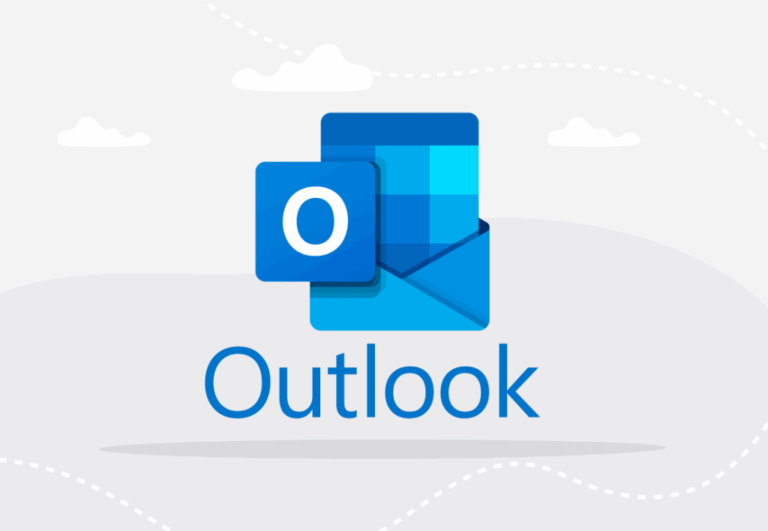Online data protection is more critical than ever in the modern, increasingly digital environment.
As cyber dangers like phishing attempts, data breaches, and identity theft increase, protecting sensitive data is crucial for both individuals and businesses.
For this protection, a managed Public Key Infrastructure (PKI) is among the best options.
Secure communication, data integrity, and authentication across digital channels are all guaranteed by the all-inclusive security architecture that managed PKI offers.
This article will examine the advantages of managed Public Key Infrastructure, how it safeguards online data, and the reasons why businesses are using it to protect their digital assets.
What is Managed PKI?

Managed PKI is a service provided by a third-party vendor who manages all the deployment, maintenance, and management of an organization’s PKI infrastructure.
In general, a provider offers a diverse range of services, from certificate issuance, renewals, and revocation to monitoring by the providing agency.
As a result, enterprises may enjoy the benefits of robust and sound security without having to deal with the hassle of maintaining such infrastructure on their property.
How Managed PKI Protects Your Online Data
Managed PKI enhances the security of data in many prime and important aspects while dealing with online data protection.
1. Secure Data Transmission Through Encryption

It helps to ensure that information sent over the networks is secure and cannot be intercepted and read by anyone except persons who have received the decryption key.
This was made particularly important by potentially sensitive information such as transactional details, identification data, and information that is considered proprietary.
By implementing this system in the encryption of data, instances of spying on and interception of data by unauthorized people are prevented.
Encryption is an essential process for organizations that operate in line with such industries as financial, medical, and commercial since these industries often deal with sensitive information transfer across the internet.
Outsourced PKI management helps organizations prevent misconfiguration and maintain data security through the implementation of appropriate encryption standards.
2. Strong Authentication and Access Control
A significant concern when it comes to online security is to authenticate the users. Managed Public Key Infrastructure employs stringent authentication protocols in matters concerning digital certificates that offer confirmation of the identity of users, the devices they use and servers.
Digital certificates act as an identification, carrying out the function of an identity card for the parties to communicate. This makes it difficult for attackers to forge realistic representations of users to enable them to have access to the correct information.
In addition, access control is another key managed service that managed PKI providers put into practice by issuing certificates to authenticated users only.
Here, it prevents impersonation attacks, and by confirming the identity of each entity under the system, the risk of data compromise is minimized.

3. Data Integrity Protection
When communicating using networks, information is easily intercepted and manipulated. The authenticated managed PKI utilizes cryptographic hashing and digital signatures to maintain data integrity.
This is accomplished through a digital signature that is created through the use of a private key to ensure the integrity of the data. Any attempt to read or modify the data in the message is immediately detected as invalid, and the recipient is not notified of the attempt to alter the document.
For instance, in e-mails, the digital signature guarantees that the message may not have been altered by a third party. Outsourced services help sustain certificates that facilitate such digital signatures while guaranteeing that data purity is observed.
4. Non-repudiation
A key component of PKI is non-repudiation, which makes sure that neither the sender nor the recipient may retract their participation in a message or transaction.
Digital certificates are used by managed Public Key Infrastructure services to produce an auditable record of digital transactions, which is crucial for averting data exchange conflicts.
Non-repudiation, for example, prohibits a party from rejecting a financial transaction that they started.
Managed Public Key Infrastructure provides legal guarantees in the event of a dispute and assists enterprises in establishing a system where activities are accountable and traceable.
Key Benefits of Managed PKI

By leveraging managed PKI, organizations are able to unlock a lot in terms of benefits for improving their cybersecurity stance.
Some of these advantages include:
1. Simplified PKI Management
PKI deployment and management involve particular skill needs and resources that are really intensive in maintenance.
Since the service provider handles every facet of certificate lifecycle management, managed PKI does away with the requirement for internal PKI knowledge.
Lessening the workload on IT personnel involves issuing, renewing, revoking, and monitoring certifications.
Additionally, through the use of managed PKI providers, entities are assured that operations are within standards and regulatory requirements set for PKI, hence freeing resources to concentrate on their businesses.
2. Enhanced Security and Compliance
The security standards of the managed PKI providers are very high; accordingly, very stringent controls are instituted to secure the infrastructure. This includes proper essential management practices, periodic security audits, and regulatory compliance.
Compliance by managed Public Key Infrastructure with industry-specific standards like HIPAA, PCI-DSS, and GDPR means that organizations in regulated industries, such as health and finance, now have their work cut out.
In summary, organizations can implement managed Public Key Infrastructure to meet regulatory requirements with greater efficiency and avoid the risk of fines assessed on organizations that don’t follow those regulations.

3. Scalability
The managed PKI services are highly scalable, which makes it very easy to extend security to new users, devices, and applications.
Since organizations are ever-growing, it would be easy to quickly make changes in the infrastructure provided by providers to handle the addition of the certificates and maintain high levels of security.
This scalability is helpful, especially in those enterprises that undergo digital transformation where new devices and users are constantly added to the network.
4. Cost Savings
Building up and managing an in-house PKI infrastructure requires considerable investments in hardware, software, and human resources. In the case of managed PKI, no upfront cost is required.
Instead, it offers subscription-based services that enable the enterprise to pay for precisely what is used. In addition, through the use of managed PKI, the overhead cost for certificate management, including renewals, revocations, or replacements, will be reduced over time.
5. Rapid Deployment
With managed PKI, an organization can deploy secure solutions much faster than it would have done if it were building the infrastructure in-house.
The providers of managed PKI already have ready-made solutions that can be implemented quicker, hence allowing organizations to improve their security posture without extensive deployment times.

Bottomline
In an increasingly digital and dangerous world, managed Public Key Infrastructure is a potent way to safeguard data online.
The demand for safe, scalable, and effective data security solutions is more significant than ever as cyber threats keep growing.
By utilizing managed PKI providers’ experience, businesses can concentrate on their main goals and be secure in the knowledge that cybersecurity professionals are handling their digital assets.
Related Posts:
- How Data Security Protects Nursing Home Residents:…
- What is Managed Colocation and How Does It Work?
- The Role of Reliable Data Centers in Supporting…
- Building Your Online Presence ─ Easy Tactics to Gain…
- A Simple Unicode Invisible Character Can Save Your…
- SEO Guide for Builders Merchants - Boost Your Online…








